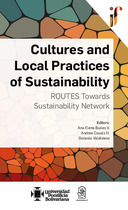Thomas More’s Utopia and Vasco de Quiroga’s Républica as Sustainable Habitats
| dc.contributor.author | Spinozzi, Paola | |
| dc.date.accessioned | 2021-12-02T15:03:22Z | |
| dc.date.available | 2021-12-02T15:03:22Z | |
| dc.date.issued | 2021 | |
| dc.identifier.isbn | 978-958-764-999-4 | |
| dc.identifier.uri | http://hdl.handle.net/20.500.11912/9745 | |
| dc.description | 32 páginas | spa |
| dc.description.abstract | Societies have struggled with sustainability for centuries and the notion of sustainable society, widely debated nowadays, invites an investigation into the early modern age when social models were conceived. Utopia as a genre thrives on the assumption that human ingenuity can produce good habitats, in which every tangible and intangible aspect of existence is carefully planned. As an early modern expression of anthropocentrism, the genre exhibits the impact of utopian projects on the natural, human, and built environment. Thomas More, an Englishman born in London in 1478, and Vasco de Quiroga, a Spaniard born in Madrigal de las Altas Torres in 1470, envisioned ideal places based on their legal education, religious convictions, and political expertise. | spa |
| dc.format.mimetype | application/pdf | |
| dc.language.iso | spa | |
| dc.publisher | Universidad Pontificia Bolivariana | spa |
| dc.rights | Attribution-NonCommercial-NoDerivatives 4.0 International | * |
| dc.rights.uri | http://creativecommons.org/licenses/by-nc-nd/4.0/ | * |
| dc.subject | Desarrollo sostenible | spa |
| dc.subject | Medio ambiente | spa |
| dc.title | Thomas More’s Utopia and Vasco de Quiroga’s Républica as Sustainable Habitats | spa |
| dc.title.alternative | Cultures and Local Practices of Sustainability. ROUTES Towards Sustainability Network | spa |
| dc.type | bookPart | spa |
| dc.description.sectional | Medellín | spa |
Files in this item
This item appears in the following Collection(s)
-
Capítulos de libro [747]


